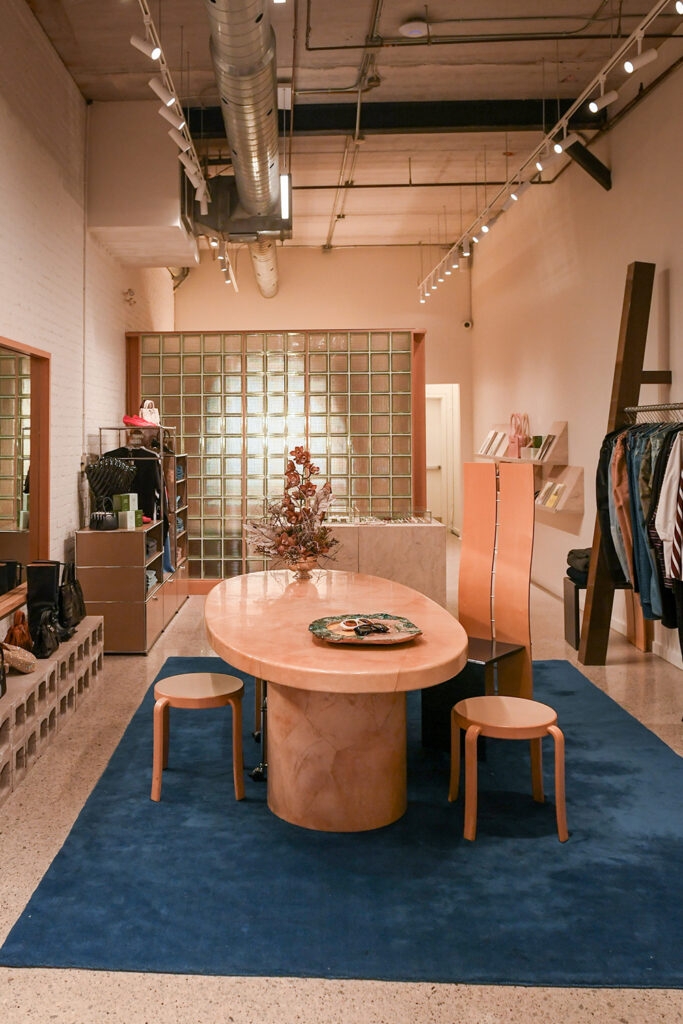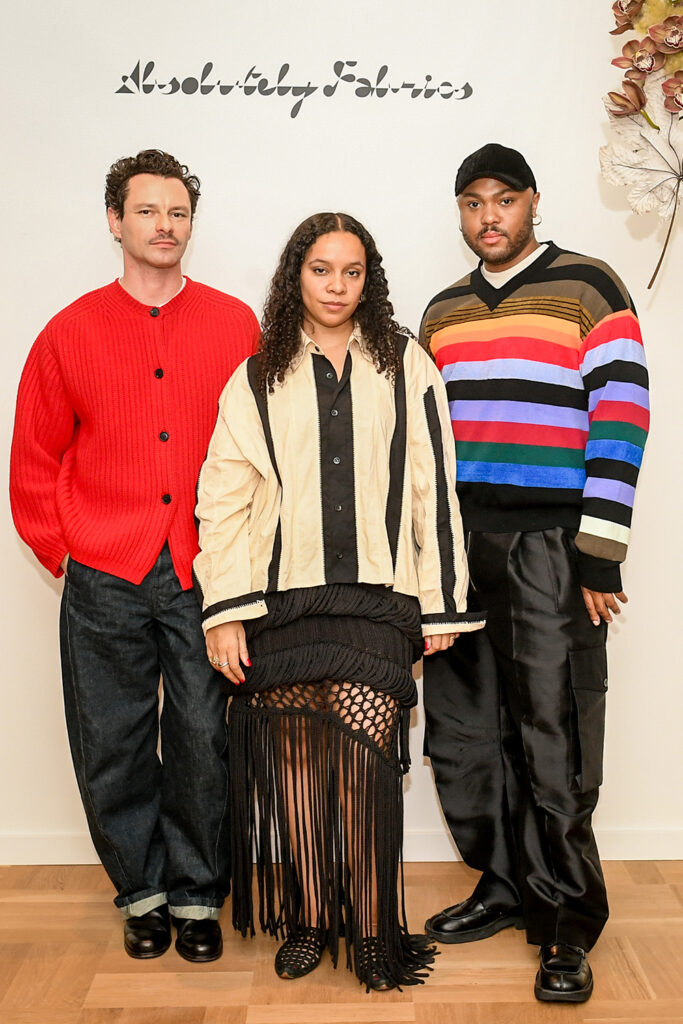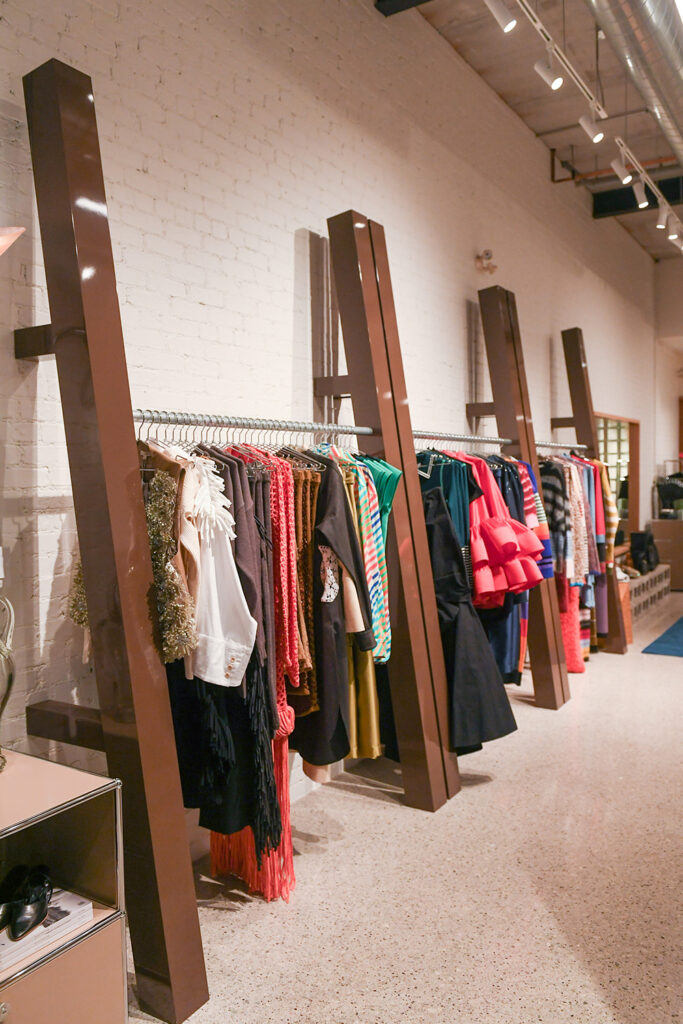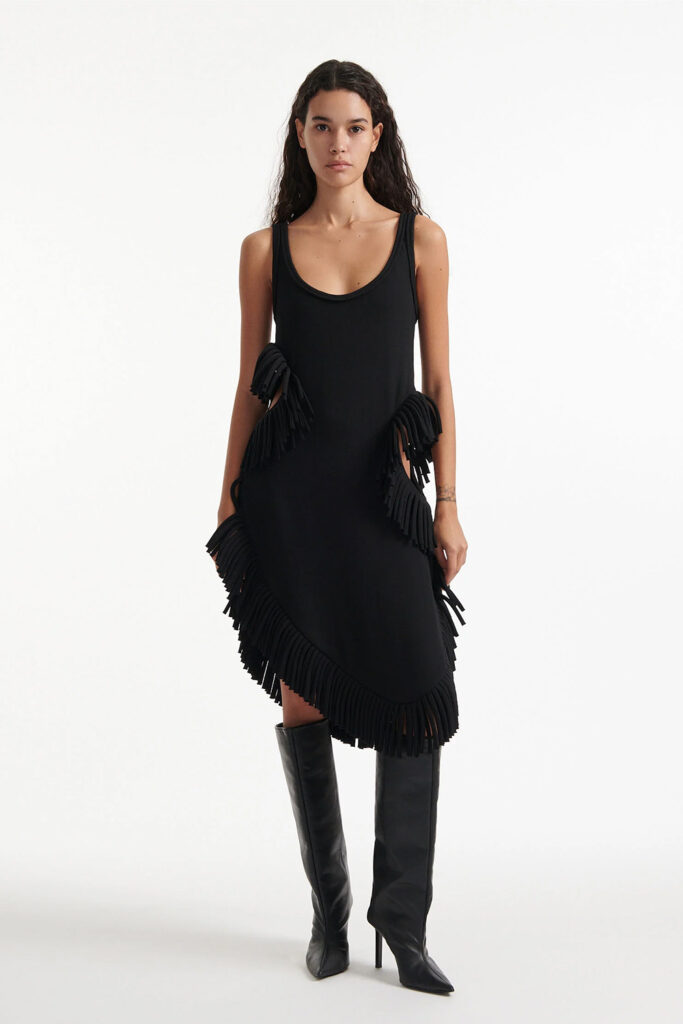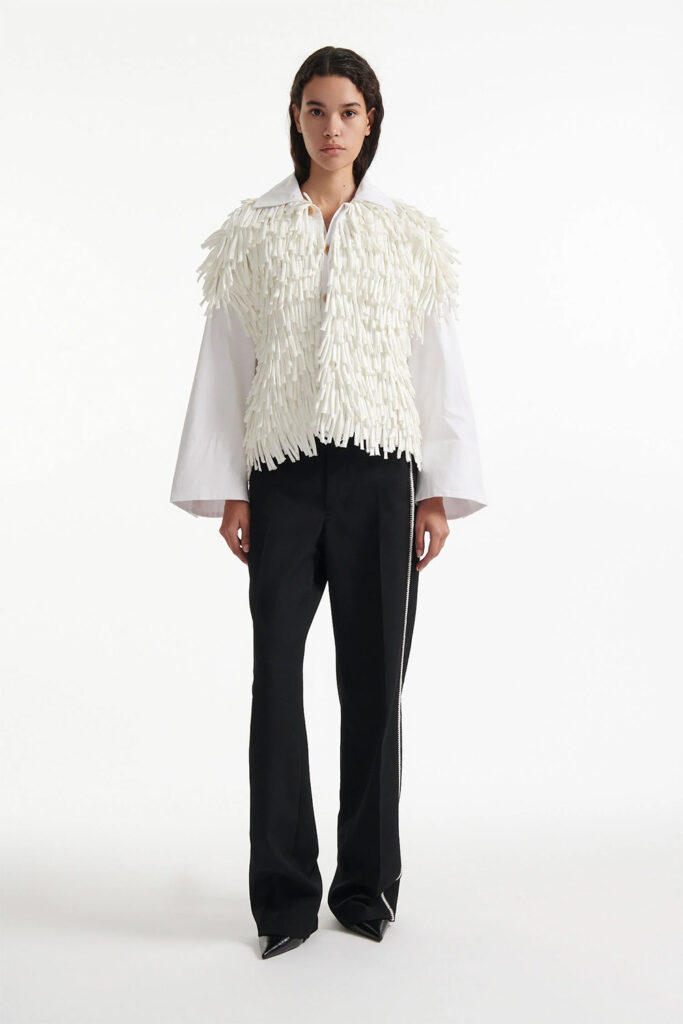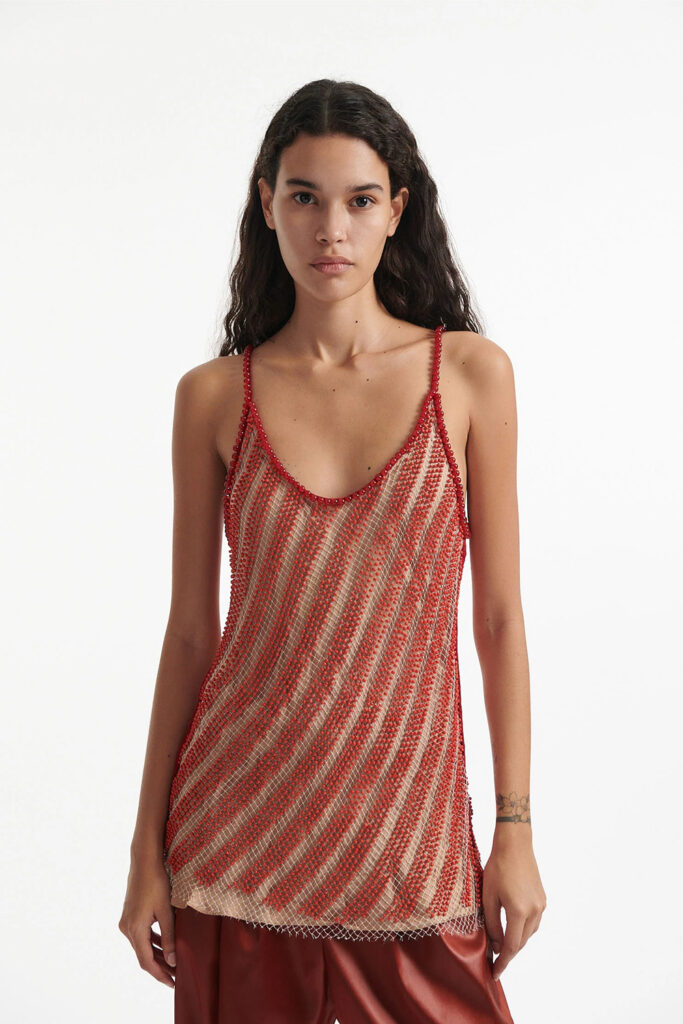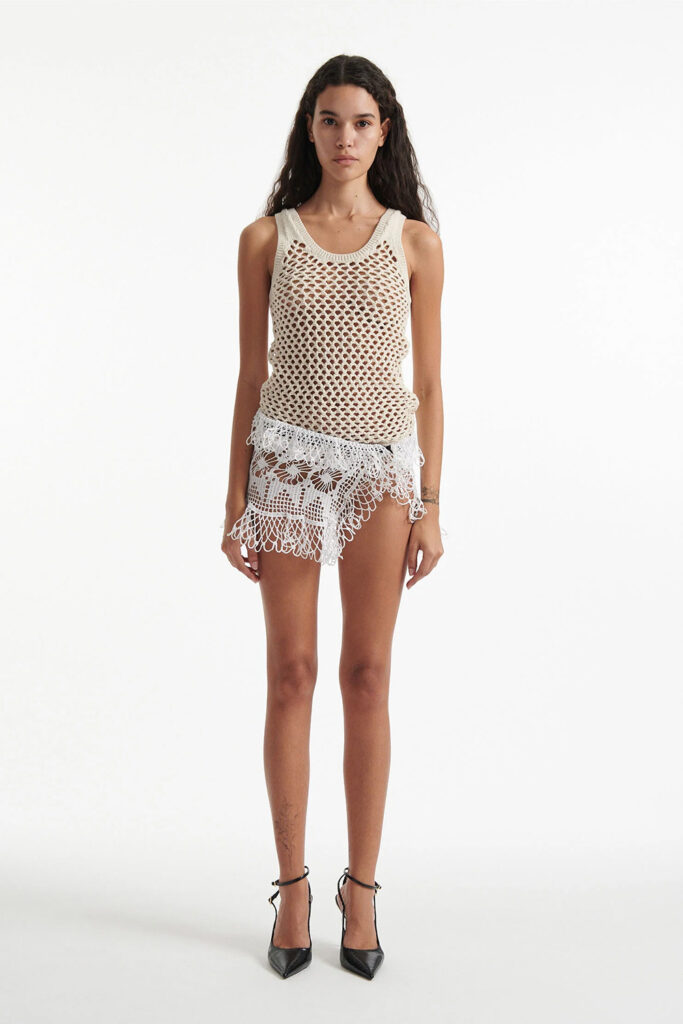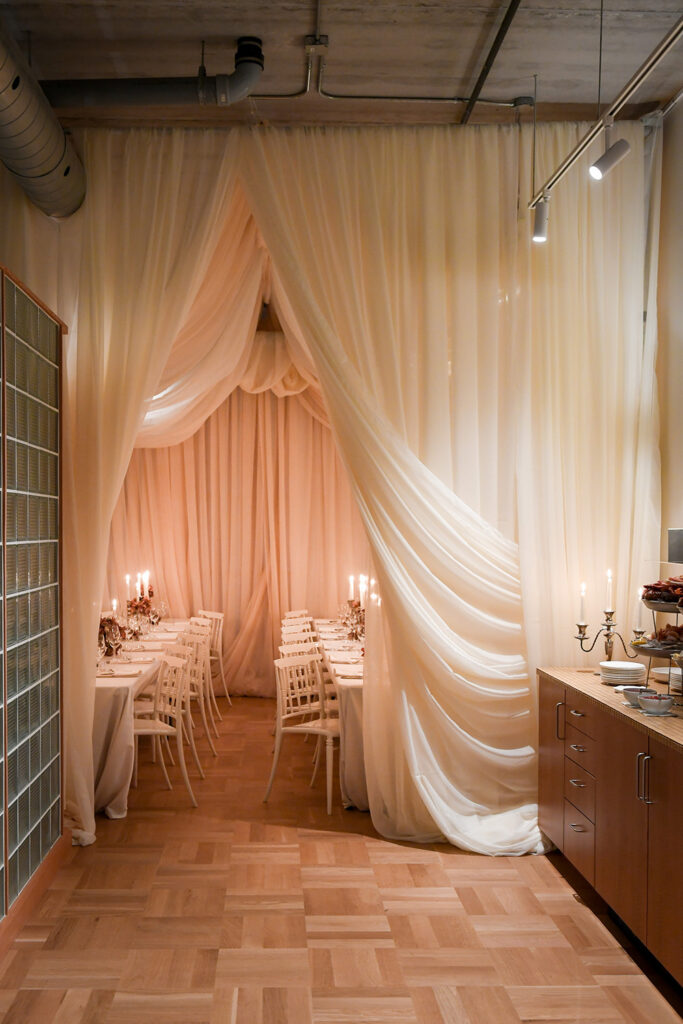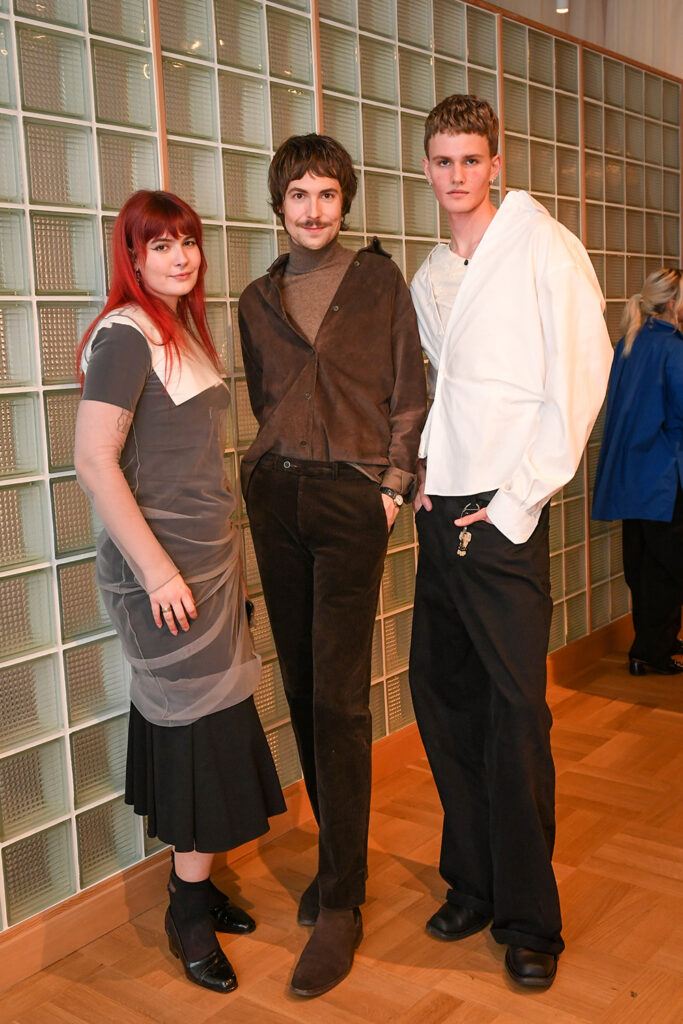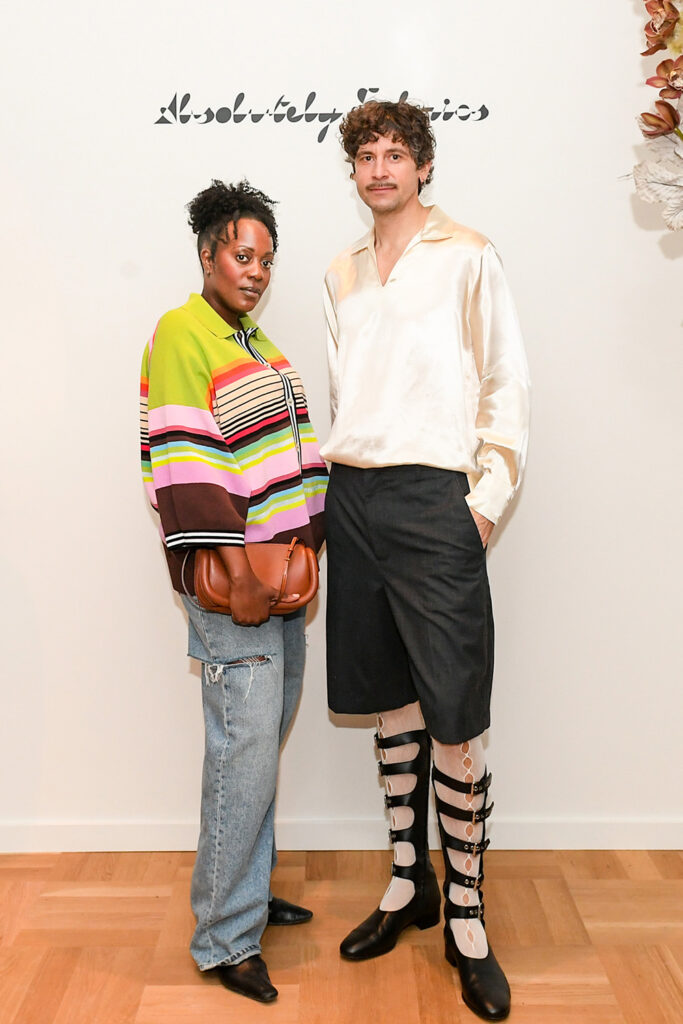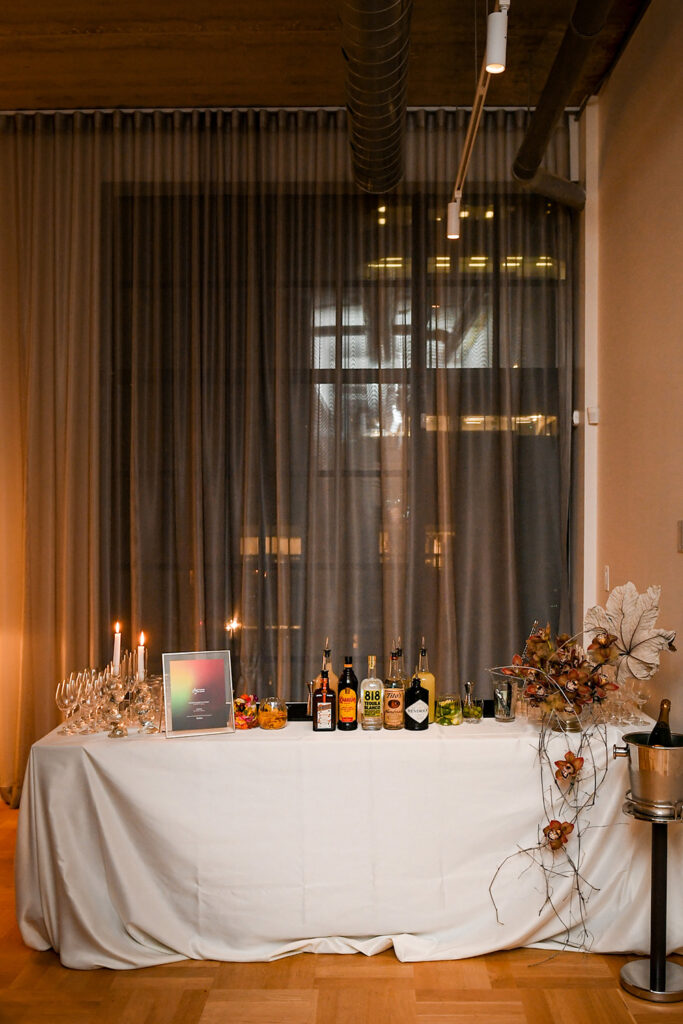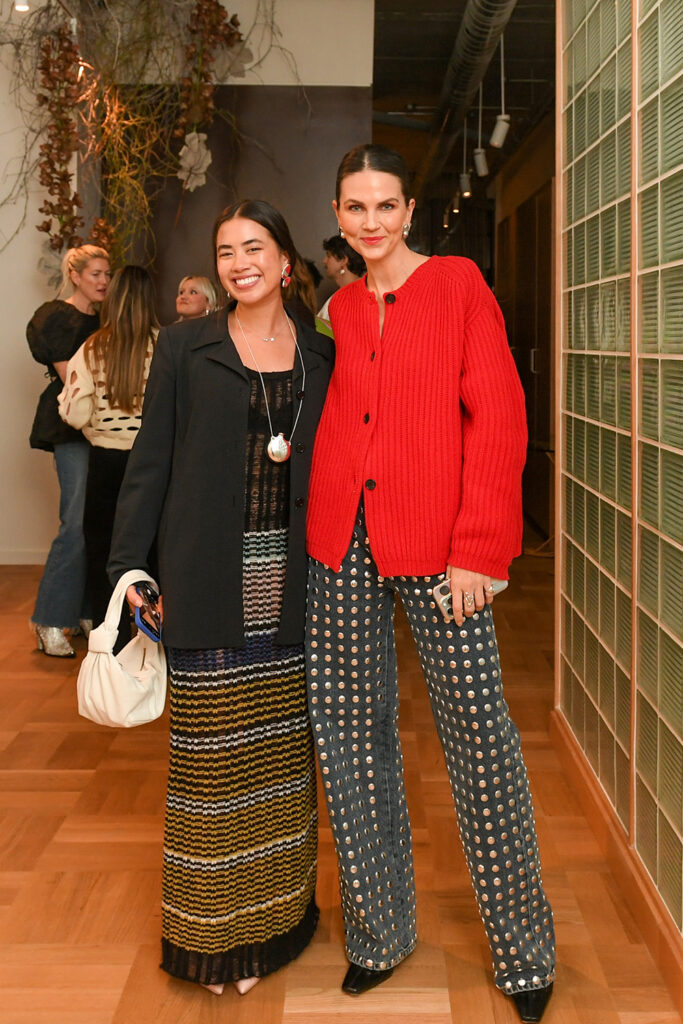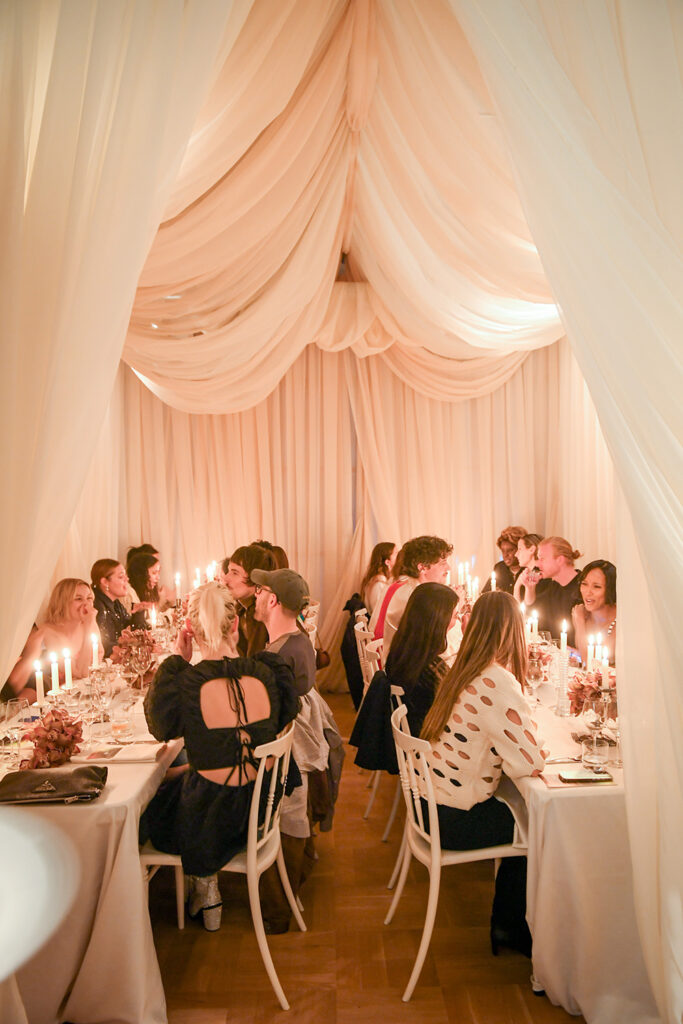Located in the heart of the fashion district, Absolutely Fabrics is Toronto’s one-stop shop for distinctive designers and highly curated designer vintage.
In celebration of several new designers who will be joining the store’s curated selection, Absolutely Fabrics hosted an intimate dinner to toast the creative minds of Rachel Scott of Diotima (2024 CFDA Womenswear Designer of the Year), Christopher John Rogers, and Henry Zankov (2024 CFDA Emerging Designer of the Year).
Become an S Insider
The latest in fashion, beauty, design, and arts & culture.
Rachel Scott started her brand three and a half years ago after noticing a market gap that she was more than happy to fill. With years of experience in the industry—she quickly formed a strong brand identity, combining her Jamaican identity and sophisticated techniques in fabric manipulation like crochet and mesh. Worn by the likes of Gabrielle Union, Keke Palmer, and Letitia Wright—her sexy and captivating designs aim to highlight the artistry of Jamaican crochet and the beauty of handmade fashion. Beyond her designs, Scott is celebrated for championing ethical production and collaborating with international artisans to redefine American luxury fashion in a way that celebrates cultural storytelling, respect, and sustainability.
Between espresso martini and seafood towers, I had the privilege of sitting down with Diotima’s creative powerhouse, Rachel Scott—where she shared more about the values that shape her brand, her design philosophies, and the profound connections between fashion, philosophy, and community.
SG: Can you explain the philosophical figure ‘Diotima’ and what about that story resonated with you so much that you wanted to connect it to your brand and integrate it into the world you built?
Rachel Scott: “So I got to Diotima, not through the original reference in Plato’s Symposium, but through Eros and Civilization by Herbert Marcuse. And it’s really about civilization and desire—in it, he talks about this idea of Diotima and connects it to the idea that you can take desire and sublimate it in an unoppressive way to create culture. And for me, that’s how I want to operate in this world. But then, when you go back to her first references in Plato’s Symposium, she explains love to Socrates, she’s the only female figure, and it’s unclear whether she’s real or not. I think this kind of anonymity and power is so beautiful. Also, I don’t know if this is true or not—but I have friends who are philosophy professors who are Greek, and they’ve told me that it’s possible if she did exist, she would have been a very special type of prostitute who teaches, which I think is super special.”
What is some essential philosophy literature that you’d recommend to give people a deeper understanding of Diotima’s principles?
“I mean, there’s so many I don’t know if I’m going to do this any justice—but for me, Herbert Marcuse is very important, and the whole Frankfurt school of philosophy in general. The works that affect how I think about the world and culture are Aime Cesaire’s Discourse on Colonialism, a lot of Frantz Fanon’s works, and the surrealist group Tropiques, which published a quarterly literary magazine in Martinique during Vichy time. I mean, I would even say someone like Niche is important at the end of the day—you can take what you need from it and leave the rest.”
The fashion industry historically has a very complicated relationship with labour and manufacturing, especially in a time of fast fashion—it’s something that you’ve tackled head-on instead of trying to avoid. Can you explain why it is so important to you to prioritize the community in this process, and what kind of impact that has?
“I think about it in a big-picture way. For me, considering labour is considering the climate crisis and ultimately understanding the true meaning of luxury. I think that things that are made by hand obviously cannot operate at the same timeline or scale as fast fashion because things are being made to order. When there is knowledge and craftsmanship that is being put into something being made—to me, those things are the highest form of luxury. In my opinion, the value should be placed there rather than something that is simply made in Europe or covered in logos.
“It’s really important to me to work with our teams in a way that’s not exploitive, I work very closely with our friends in Jamaica and have been since it all began, I’m very committed to working with them, even though Jamaica doesn’t have a tradition of fashion in a global sense. I spend a lot of time thinking about how I can support them in a way that is respectful and fair. I also work with artisans in India and multi-generational family businesses in Japan and Italy. My goal is always to create a reorientation of how we interact with clothes and our understanding of what their value is.”
What makes Jamaican crochet unique?
“They use a very specific yarn—I tried to change it once…they don’t like that. They do very specific stitches that are recognizable, so if someone from Trinidad sees it—they’re like, ‘my grandmother used to make that,’ you know? The people I work with also do other crafts that I know don’t exist anywhere else. It’s just going to take a much longer time for you to develop it and to put it into the collections.“
What are some Diotima design techniques that capture your brand’s essence?
“In my new collection, there are some material and fabric manipulations that are very specific to the brand. The Scatter Dress has cutouts on the hip and the stomach, with this gorgeous hand-rolled spaghetti fringe made from wool, which is quite unusual to embellish with. The same technique is also seen on the Penlyne Jacket, which is my idea of fur—kind of an anti-fur.”
“I’m also quite obsessed with mesh—I’m quite obsessed with the idea of what you expose and what you conceal, I love playing with that tensions and the sensuality of that idea. You’ll notice lots of my pieces of mine will play on that combination of being naked and not being naked.”
After taking home the award for Womenswear Designer of the Year at the 2024 CFDA Awards I’m sure you have a chance to reflect on this year and your brand’s growth, what have been some of your proudest moments so far?
“…Honestly, I haven’t had much of a chance to reflect. It’s crazy, I mean, I am the only full-time person at my brand, and everyone on my team is super committed and collaborative—but there’s just not much time for me to reflect. It’s very hard for me to comprehend what happened at the awards for so many reasons. That night was a total changing of the guard, which was incredible. I think there were echoes and waves of it in Europe, and it’s not typical for New York to make that kind of impact on Europe, and the fact that it was with my good friends made it even more special.”
Your graduating class!
“Yeah! And the thing is, all of us are independent brands, but we all have lots of experience and have all worked in the industry for a long time. We’re all committed to creating a new idea of, I guess, American Fashion. It’s such an overwhelming honour, and it’s weirdly very humbling, so it’s hard to comprehend, but it’s great. I would have never guessed when I launched this brand three and a half years ago in the middle of the pandemic that this is where we could go. So I’m just so grateful.”
Diotima is available at Absolutely Fabrics now!
